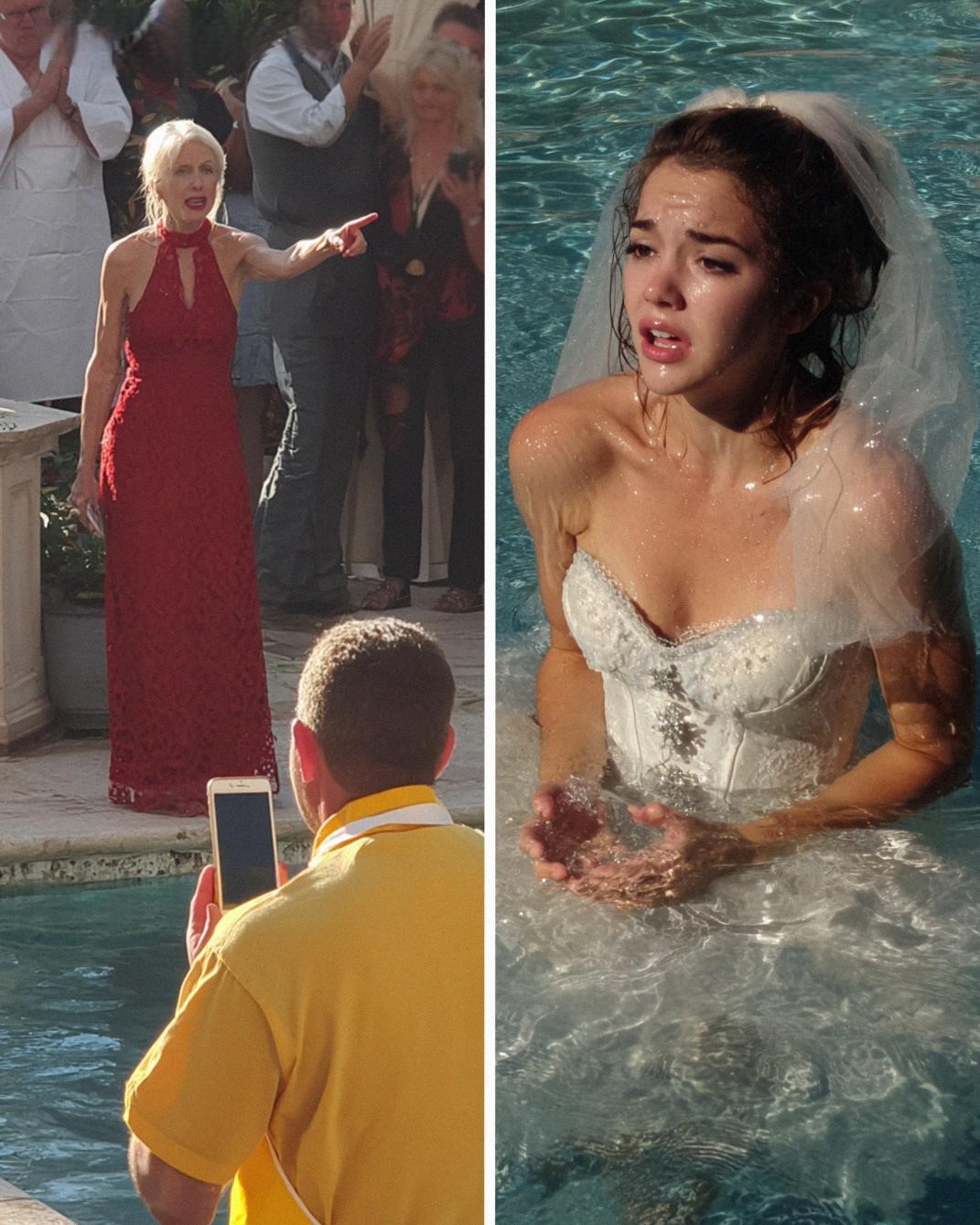My wedding day was meant to be a beautiful celebration filled with music, laughter, and endless joy—not flashing emergency lights and a frantic rush to the ER. I had meticulously planned every detail down to the last petal on the flowers, the delicate glow of the string lights, and the gentle notes of soft jazz playing in the background. But no amount of planning could have prepared me for the cruelty that came from one person: my mother-in-law.
My name is Allison, I’m 27 years old, and I was born with moderate hearing loss. Since the age of eight, I’ve worn hearing aids—devices that have always been a part of who I am. There’s never been anything shameful about them to me; they’re just a part of my story. When I met Ryan, the man who would eventually become my husband, I felt truly seen and accepted for the first time in my life, quirks and hearing aids included. He loved me fully. But his mother, Vivian, did not share that sentiment.
From our very first brunch at her sprawling mansion, Vivian made her feelings clear. “You’re so… brave,” she said with a forced smile, eyes fixed coldly on the small devices behind my ears. She never said I was beautiful or welcome — just “brave,” as if I was some kind of admirable oddity, defective yet somehow worthy of pity.
Ryan warned me she was difficult, but I don’t think he truly understood the depth of her cruelty until it unfolded before our eyes. To Vivian, I was never enough. Not rich enough, not refined enough, and most painfully, not perfect. Every meeting came with tiny, stinging comments disguised as advice. “You should wear your hair down,” she’d say with a hint of disdain. “It hides things.” Or, “Make sure your vows are loud enough for everyone to hear.”
Ryan always stood up for me, fiercely protective. Two months before the wedding, he delivered an ultimatum to Vivian: “Be respectful or don’t come.” She smiled and promised to behave, but deep down I should have known better.
The ceremony itself was everything I dreamed of — beautiful, tender, peaceful. Vivian mingled among the guests, sipping champagne and wearing her porcelain smile, and for a moment, I allowed myself to believe she might be trying to accept me.
But then the reception happened.
The band played on, guests laughed and danced, and Ryan and I had just finished our first dance as a married couple. That’s when Vivian approached, her smile sharp and too sweet, her perfume overpowering the room.
“You forgot something,” she said, voice dripping with a fake sweetness.
Before I could react, she shoved me—hard.
My back slammed against the railing, and then I was falling—headfirst—into the cold, dark pool below. The water engulfed me instantly, icy and unforgiving. I felt my hearing aids short-circuit, a sudden, horrifying silence replacing the world around me. Panic flooded me as I struggled to surface, coughing and gasping, half-deaf and utterly terrified. Around me, I heard screams—chaotic, muffled, desperate. Ryan plunged in after me, pulling me safely to the edge.
Vivian stood frozen, her wine glass still in hand. “I didn’t mean to,” she stammered, her voice dripping with false innocence. But her eyes told a different story—satisfaction, not regret.
At the hospital, doctors confirmed the worst: my hearing had significantly worsened. The water had irreversibly damaged my remaining natural hearing, and my hearing aids were beyond repair.
That night, Ryan blocked Vivian’s number. But we had no proof to take legal action—until a friend sent us a video from the reception. It showed everything: Vivian’s shove, her smug smirk, and her deliberate step backward as I fell into the pool.
Ryan watched the footage silently, jaw clenched. “We’re pressing charges,” he said firmly.
What followed was months of legal battles. Vivian claimed she tripped, then tried to call it “a playful gesture.” The judge wasn’t convinced. When the video played in court, even the bailiff looked disgusted. Vivian was found guilty of assault and ordered to pay $120,000 in damages, including $8,000 for new hearing aids.
She cried, of course. “You’re ruining my life!” she wailed.
Ryan met her gaze unwaveringly. “You did that to yourself.”
That money transformed my life in ways I never imagined. For years, I had been told cochlear implants could help me hear better—but they were prohibitively expensive. Now, with this unexpected opportunity, I could finally afford them.
Two months later, I sat nervously in the audiologist’s office, Ryan’s hand wrapped tightly around mine. When they switched on the implant, the world suddenly came alive with sound. Then, I heard his voice—clear, warm, unmistakable.
“Hey, baby,” he said softly.
Tears streamed down my face as I whispered, “I can hear you.”
It’s been a year since that day. Vivian has tried to apologize through letters, but I never responded. Her social standing crumbled, and the perfect image she worked so hard to maintain shattered completely.
As for me, I started a YouTube channel to share my journey with hearing loss and resilience. One day, at a disability rights conference, I ended my speech with these words:
“Someone once tried to silence me. Instead, she made me louder than ever.”
And every single word of that was true.
